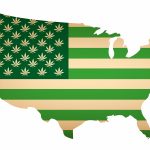EAGLE COUNTY — Colorado grows almost 40 percent of all the hemp in the country, and more than twice as much as any other state.
Not to be confused with its more famous and psychotropic cousin, marijuana, hemp is used for items ranging from medication and medical research to textiles.
Advocacy group Vote Hemp’s 2017 Hemp Crop Report says hemp cultivation more than doubled this year, from 9,770 acres in nationwide in 2016, to 23,346 acres this year.
Colorado’s hemp acreage is up from 5,921 in 2016 to 9,000 this year.
Scot Hunn owns and runs Hunn Planning and Policy and is not surprised
‘LEAPS AND BOUNDS’
“It is growing by leaps and bounds, and it’s the non-THC derived products that are leading that growth,” Hunn said.
Like most places, Eagle County does not heavily regulate hemp production. It’s treated as an agricultural product, and is not regulated nearly as heavily as recreational or medical marijuana cultivation, Hunn said.
“The medical and recreational marijuana business is really hard, it’s tough. The margins are razor thin, and the regulations change,” Hunn said.
After Colorado, Kentucky is second in hemp production with 3,100 acres, Oregon with 3,469 acres, North Dakota and New York with 2,000 acres.
Three dozen states have removed barriers to hemp production and categorized industrial hemp as an agricultural crop.
Hemp’s THC levels are capped at 0.3 percent, in keeping with the federal 2014 Farm Bill.
Marijuana flowers often contain 15 percent THC or more.
The North American Industrial Hemp Council claims that hemp can be used to make up to 25,000 products.
Vote Hemp’s 2017 U.S. Hemp Crop Report says that 32 universities conducted hemp research this year, and that 1,456 state hemp licenses were issued to researchers and cultivators.
Forbes magazine cites a report by Brightfield Group projecting that hemp-derived cannabidiol (CBD) will be a billion dollar market in three years. Brightfield estimates that CBD sales topped $170 million in 2016.
(3310)





Leave A Reply